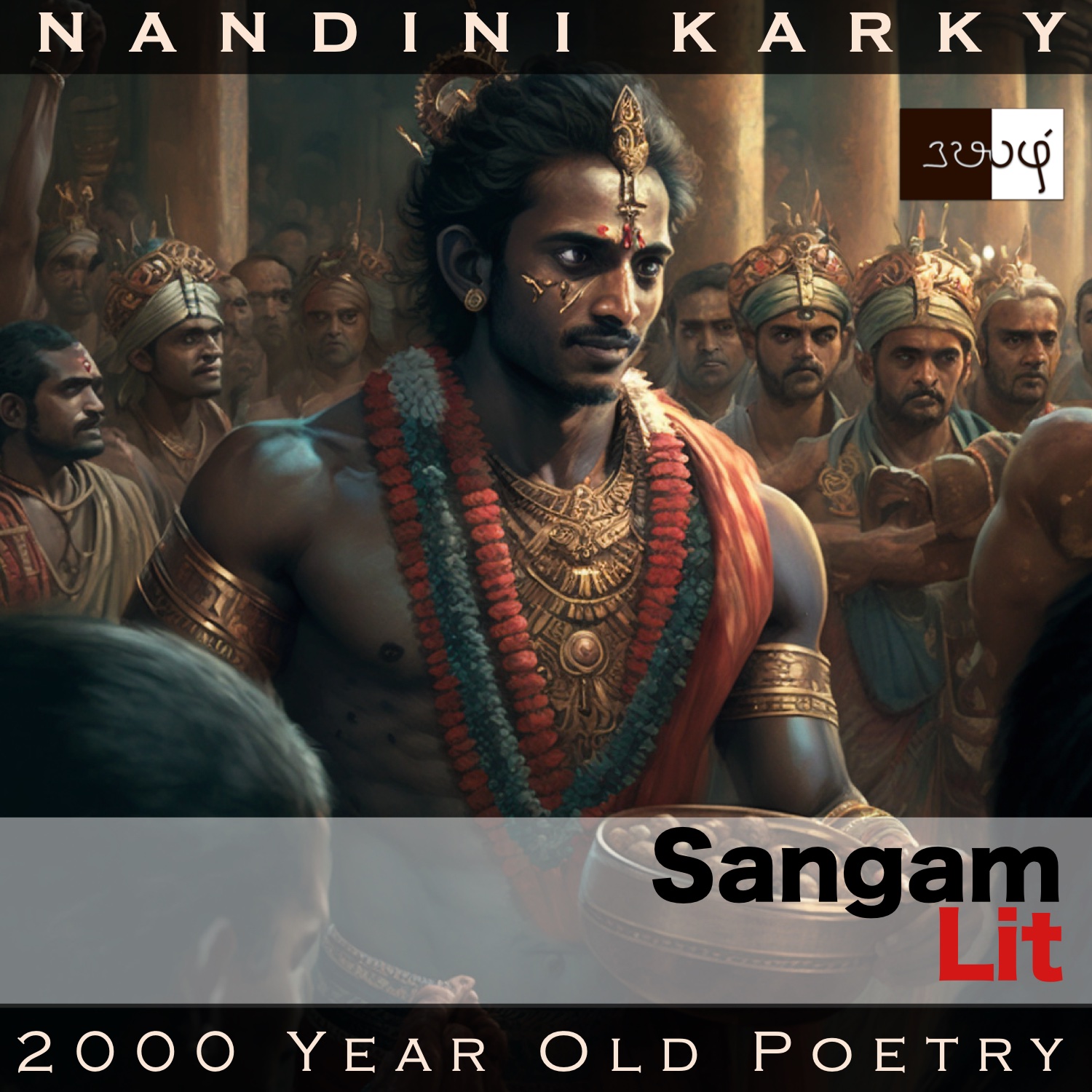Podcast: Play in new window | Download
Subscribe: Apple Podcasts | Spotify | Amazon Music | Android | iHeartRadio | TuneIn | RSS | More
In this episode, we listen to words of advice rendered unto a king, as depicted in Sangam Literary work, Puranaanooru 121, penned about the Velir King Malaiyamaan Thirumudi Kaari by the poet Kabilar. Set in the category of ‘Pothuviyal Thinai’ or ‘Miscellaneous matters’, the verse brings out the generosity and impartiality of this ruler.

ஒரு திசை ஒருவனை உள்ளி, நால் திசைப்
பலரும் வருவர், பரிசில் மாக்கள்;
வரிசை அறிதலோ அரிதே; பெரிதும்
ஈதல் எளிதே; மா வண் தோன்றல்!
அது நற்கு அறிந்தனைஆயின்,
பொது நோக்கு ஒழிமதி, புலவர் மாட்டே!
After having seen many songs on King Paari, we turn to yet another Velir King Kaari. The poet’s words can be translated as follows:
“Thinking of one man who lives in one direction, come many supplicants from all four directions; It’s hard to know their calibre indeed; But easy for you, to render charity unto them, O ruler, known for your immense generosity. Know this well and avoid looking at all poets as if they are the same!”
Time to delve into these words. The poet talks about how crowds of people from all four directions converge at the gates of this great ruler, seeking his gifts and patronage. Now, the poet accepts when so many come in this fashion, it’s going to be hard to gauge who stands where in their ability, and also, it’s rather easy for the king, who has so much wealth, to just render charity to all of them equally. Placing a ‘however’ in these words, the poet concludes with an advice to the king, asking him not to consider all poets as the same.
It is evident that the poet wants a differentiation among poets based on their skill. Discern among those who come to you and do not disregard quality, the poet seems to request the king. Here, the thing I would like to highlight is the way the poet brings out how somethings are indeed easy to do and some are hard to do, but that does not mean one has to choose the easy alternative. No matter how hard, do the right thing, the poet seems to tell this ancient king, and also, to us, his descendants in this century.




Share your thoughts...